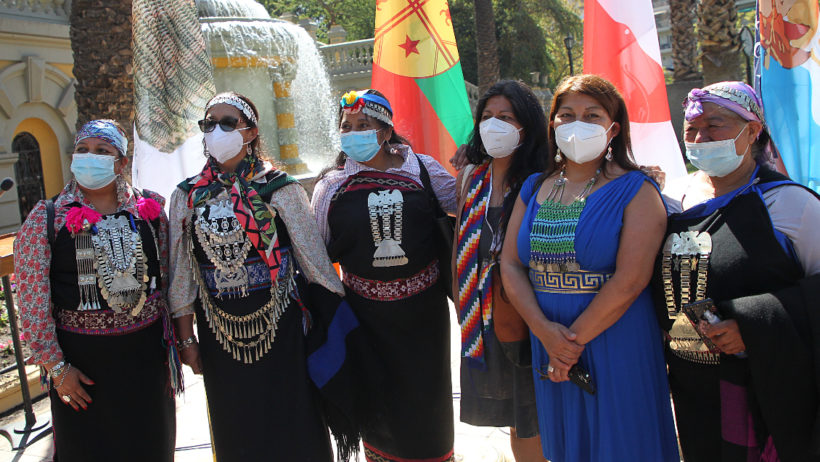The provision requires indigenous peoples to be consulted and, in addition, to give free, prior and informed consent in decisions that affect them.
The plenary of Chile’s Constitutional Convention approved raising the standard of indigenous consultation and requiring consent for all matters affecting indigenous peoples and their rights.
The provision, outlined in the second paragraph of article 7 of the Form of State Committee’s report, was approved in its entirety by 107 votes in favour and 43 against.
With this norm, the Convention installs in the new Constitution “the minimum standard of human and collective rights of the peoples”, said Elisa Loncon, a constituent of the Mapuche people.
Currently, as Chile has ratified ILO Convention 169 on Indigenous Peoples, the state is obliged to carry out an indigenous consultation on any issue affecting indigenous communities.
However, under the new provision, indigenous peoples are required to be consulted and, in addition, to give “free, prior and informed consent on those matters or issues that affect them”.
For Rosa Catrileo, a Mapuche member of the Mapuche convention, this measure represents progress because it is “the materialisation of the right to participation of indigenous peoples”, expressed in the right to consultation.
However, for her colleague from the Colectivo del Apruebo, Fuad Chahín, the new provision would be “very difficult to apply in practice” because of the complexity of determining who has to give this consent.
It also raises the standard in the Constitution “far beyond the obligations of the international instruments that Chile has signed and ratified”, added Chahín.
However, what is certain is that ILO Convention 169 and the UN Declaration on the Rights of Indigenous Peoples (UNDRIP), both signed by Chile, recognise the right of indigenous peoples to be consulted and to give their consent to measures that affect them.
Article 6(2) of the convention in question states that consultations under this instrument must be carried out in good faith and “with the aim of reaching agreement or obtaining consent to the proposed measures”.
Article 19 of the UNDRIP states that states shall consult with indigenous peoples before adopting and implementing measures that affect them “in order to obtain their free, prior and informed consent”.
It should be noted that article 7, which includes the new provision adopted by the Convention, was voted on in its entirety, i.e. no one requested a separate vote on each subparagraph. It will now form part of the proposed new Constitution.












